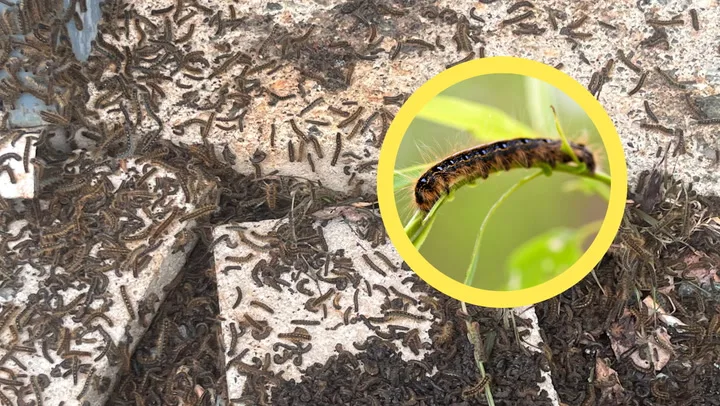
Caterpocalypse: These hairy caterpillars swarm every decade, then disappear
It’s a hot caterpillar summer.
Note: The above video is file footage of a tent caterpillar outbreak in Quebec in 2024.
Tent caterpillars had quite the time in parts of Ontario and B.C. back in June. In some communities, it was hard to step outside without seeing swarms of them draping trees and buildings.
This surge isn’t unusual. It’s long been known the caterpillars see a population boom every ten years or so, and, in a new interview from UBC Science, Dr. Judith Myers, professor emerita in the faculties of science and land and food systems, explains why.
Dr. Myers is somewhat of an expert on this hairy subject, having spent five decades researching it.
Neat! They’re resistant to climate change, so expect the swarms to keep coming
“Over the years, myself and other researchers have confirmed that a virus specific to these caterpillars was driving the populations’ cyclic declines, something seen in some other moth species as well,” Dr Meyers explains.
“Interestingly, over 50 years, we haven’t seen any effect of global warming on these insect populations. They’re highly adapted to the environment — basking in the sun when it’s cool and sheltering under tents when it’s hot.”
Along with disease, predators help to keep the population at bay. However, every few years, those limitations become less accessible, and an outbreak occurs.
A Quebec tent moth infestation that created road hazards
Some tent caterpillar explosions have been notable. For example, in June 2024, two cars slid off the road near Rouyn-Noranda, Que., when countless tent caterpillars coated the road, creating slippery conditions that one witness said felt like "ice."
Mostly harmless
Despite being annoying, tent caterpillars are rarely a cause for concern. In large swarms, the caterpillars can completely strip trees of their leaves, but most will recover from the lost foliage, even during outbreak years. And they aren't toxic, or invasive, nor do they bite.
Dr. Myers says we could stand to learn a thing or two from them.
“Perhaps we humans can learn about our own adaptability from tent caterpillars,” she tells UBC Science.
“Are we too defoliating our own “trees” with a booming global population which the Earth can’t support?”
Header image: File photos compiled by The Weather Network video & editorial team.
